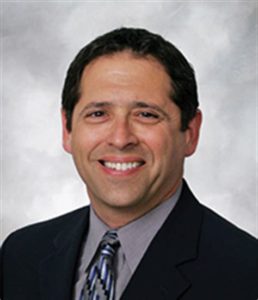Dear Friends,
CHECK OUT THIS WEEK’S PROGRAM. Charles Goldman and I discuss COP27, churches that misuse the tax code, and the mainstream media’s myth of the political “moderate.” Also, Kathy Byrnes and I discuss what state legislatures might do to bolster local “food-scaping” initiatives.

Dr. Charles Goldman
Was COP27 a success, a failure, or a mixed bag? Sad to say, it was mostly a flop.
At the conclusion of COP27, UN Secretary-General António Guterres said, “Our planet is still in the emergency room. We need to drastically reduce emissions now — and this is an issue this COP did not address. The world still needs a giant leap on climate ambition.”
The bottom line is the summit didn’t deliver on what the scientific consensus says is most desperately needed and long overdue: a global commitment to drastically slash greenhouse-gas emissions.
“But wait,” you say. “What about the deal to create a loss-and-damage fund?”
Sure, there was plenty of excitement about that, especially among the Pacific Island nations who’ve been pushing for it for over thirty years. Their argument is that wealthy nations that contribute most to climate change bear a unique responsibility to help the poorer nations most adversely impacted. For the victims of climate change, loss-and-damage is simply a matter of fairness and justice.
I concur, and I’m glad the fund was finally established. But two burning questions trouble me.
FIRST, why did the US hold out till the very last moment before signing on to the fund? I can’t prove it, and I hate to say this, but I suspect the US cut a deal with other oil-producing nations and the oil and gas industry NOT to move forward on cutting emissions.
Remember, the US is now the largest oil and gas producer in the world AND the largest exporter. An enforceable, global agreement on cutting emissions would be bad business for the fossil-fuel corporations that own the Republican Party and, alas, much of the Democratic Party.
Oh, and did I mention that there were 600 oil and gas lobbyists in attendance at COP27? Six hundred! Why were these snakes even allowed to attend the most important climate summit of the year, let alone wield influence?
SECOND, what assurance do we have that wealthy countries will follow through on their commitment to the loss-and-damage fund? While some of the smaller European nations are already moving forward on their commitments, it’s impossible to know how bigger nations will respond. For example, does anyone think a Republican Congress will commit even one red cent to such a fund?
Of course, some in the mainstream media consider loss-and-damage “ground-breaking.” TIME Magazine says it “ushers in a new era of climate policy, where compensating developing countries for climate impacts receives top billing in international climate discussions.”
We’ll see. I hope the optimists are right. I’m not by nature a Debbie Downer, but it’s important to approach the growing global crisis with candor and honesty, and to remain active and focused.
Which brings me to two asks:
FIRST, Listen to the final segment of this week’s program, where Kathy Byrnes and I discuss building support for local food self-reliance. Then call a member of your city council and ask them to prioritize planting edible landscapes. (If you need detailed talking points, contact kathy@birdsbeesurbanfarm.org.)
SECOND, if you live in Iowa, send a letter to the Iowa Utilities Board (IUB) objecting to the false climate scheme of CO2 pipelines. For talking points on that, you can reach me at ed@boldiowa.com. Here’s a link to the IUB site. Note that it’s confusing and cumbersome (perhaps by design). If you have trouble filing your objection, call IUB support staff at (515) 725-7337.
Thanks, and if you’d like to donate to keep us on the air, please visit this link or mail a check to:
The Fallon Forum
735 19th Street
Des Moines, IA 50314
Thanks! — Ed Fallon
*******
(02:20) COP27: Success, failure, or mixed bag?
(19:23) Mainstream media manufacture misplaced myth of “moderates”;
(36:43) How some churches misuse the tax code;
(53:08) What state legislatures can do to bolster local food-scaping, with Kathy Byrnes
You can also catch the Fallon Forum on these affiliates:
– KHOI 89.1 FM (Ames, Iowa)
– KICI.LP 105.3 FM (Iowa City, Iowa)
– WHIV 102.3 FM (New Orleans, Louisiana)
– KPIP-LP, 94.7 FM (Fayette, Missouri)
– KCEI 90.1 FM (Taos, New Mexico)
– KRFP 90.3 FM (Moscow, Idaho)
– WGRN 94.1 FM (Columbus, Ohio)
– KKFI 90.1 FM (Kansas City, Missouri)
Please support the local businesses and non-profits who make this program possible. Click on their logos on the Fallon Forum website and in our weekly email, and visit Dr. Drake Family Psychiatry, Story County Veterinary Clinic, Bold Iowa, and Birds & Bees Urban Farm. Thanks for supporting the civil alternative to the shock jocks!

Ed Fallon

I challenge Guy McPherson to a debate. I am a RN that needs 4 classes for my bs in science. I did have several mentors that make me a better scientist than GM. He will not debate me because he’ll be booking a loser. He’s a coward!
I think we have not yet started on a good path toward a better planet because money rules everything and money is the issue with this because of the fear that the energy industry (and others) would lose money if we stopped using oil and fossil fuels. I counter that with the very real possibility that if the energy industries came together to develop dependable and efficient alternatives there would be as much if not more to profit from, energy prices could be lower than now even with the industry raking in profits. One of my big questions for some time, with regard to the vulnerability of windmill electric production, is why can’t they switch to the vibrating tower or the vibrating cone structure, which are both less vulnerable to storms and such? Another question is why do supply wires have to be hung on poles when, while it would cost more to begin with, surely, but once buried would not have to be dealt with for at least 20 years, so over time would be much cheaper and much less vulnerable to ice and wind storms and poles taken down by street and highway crashes, so more dependable?